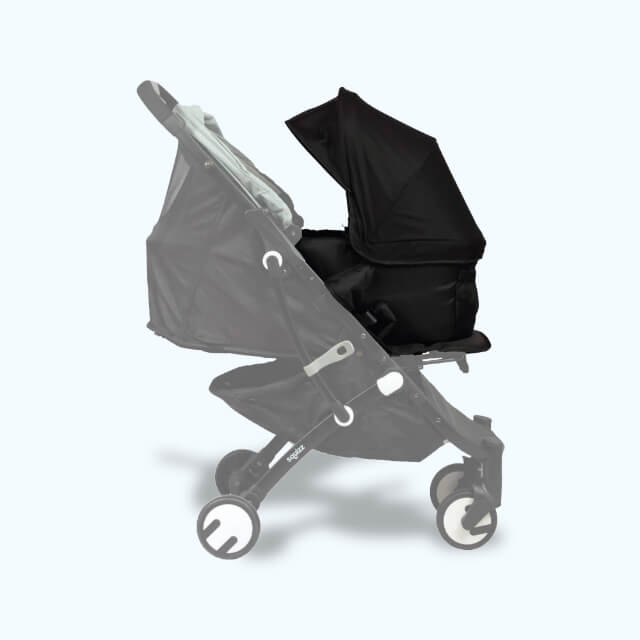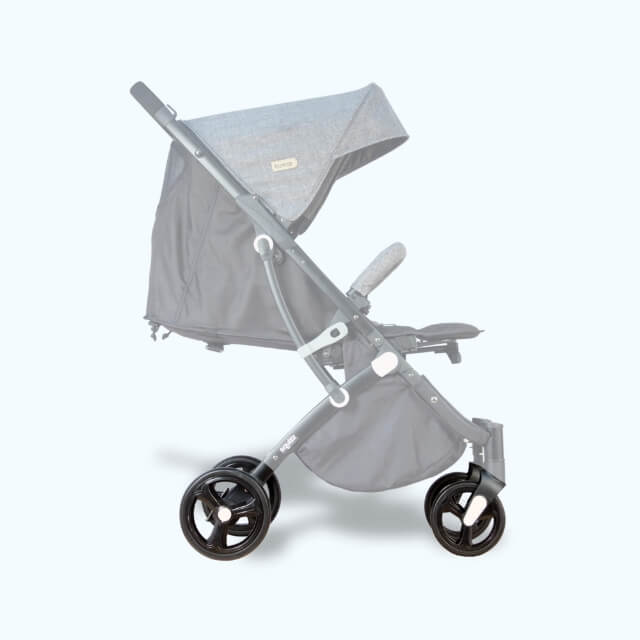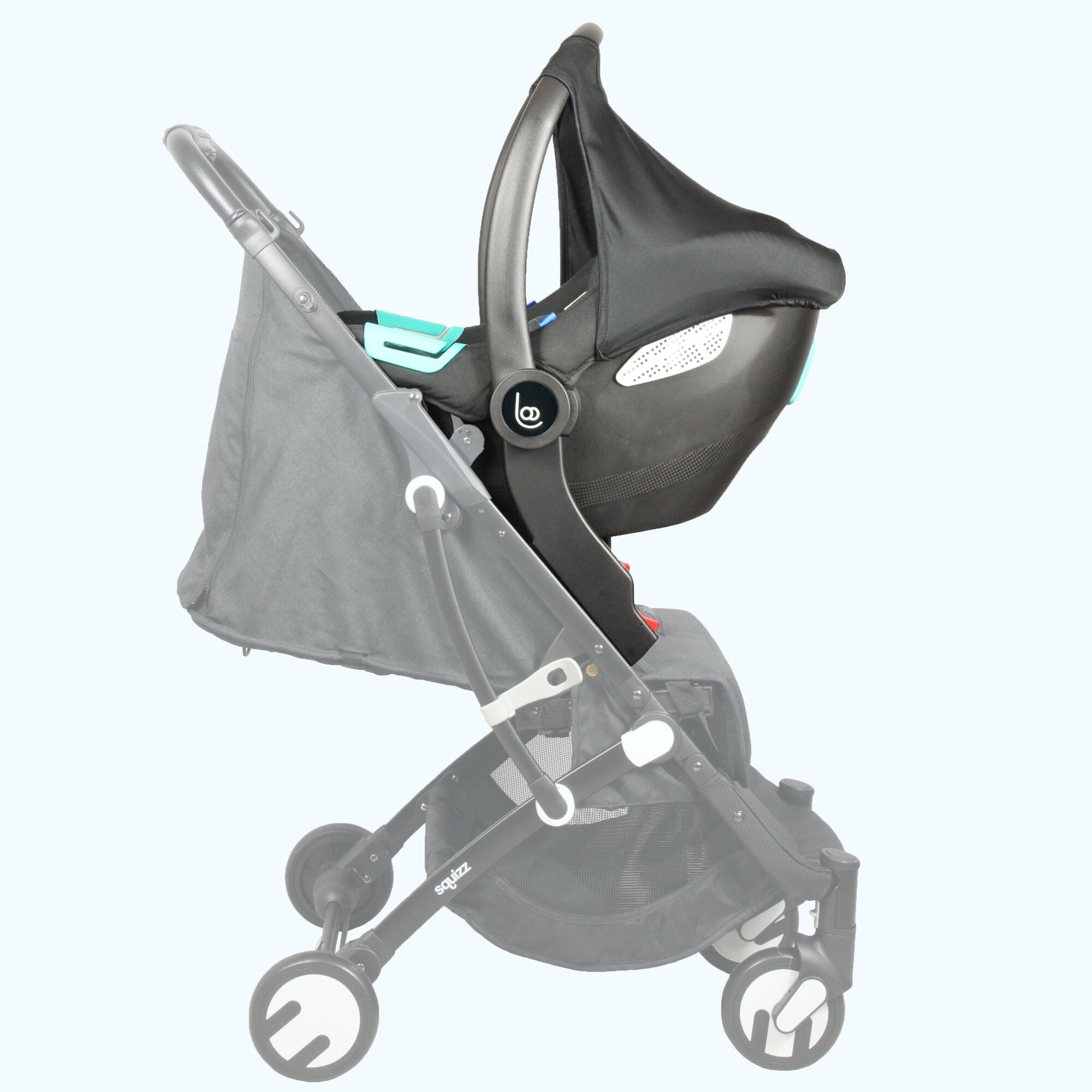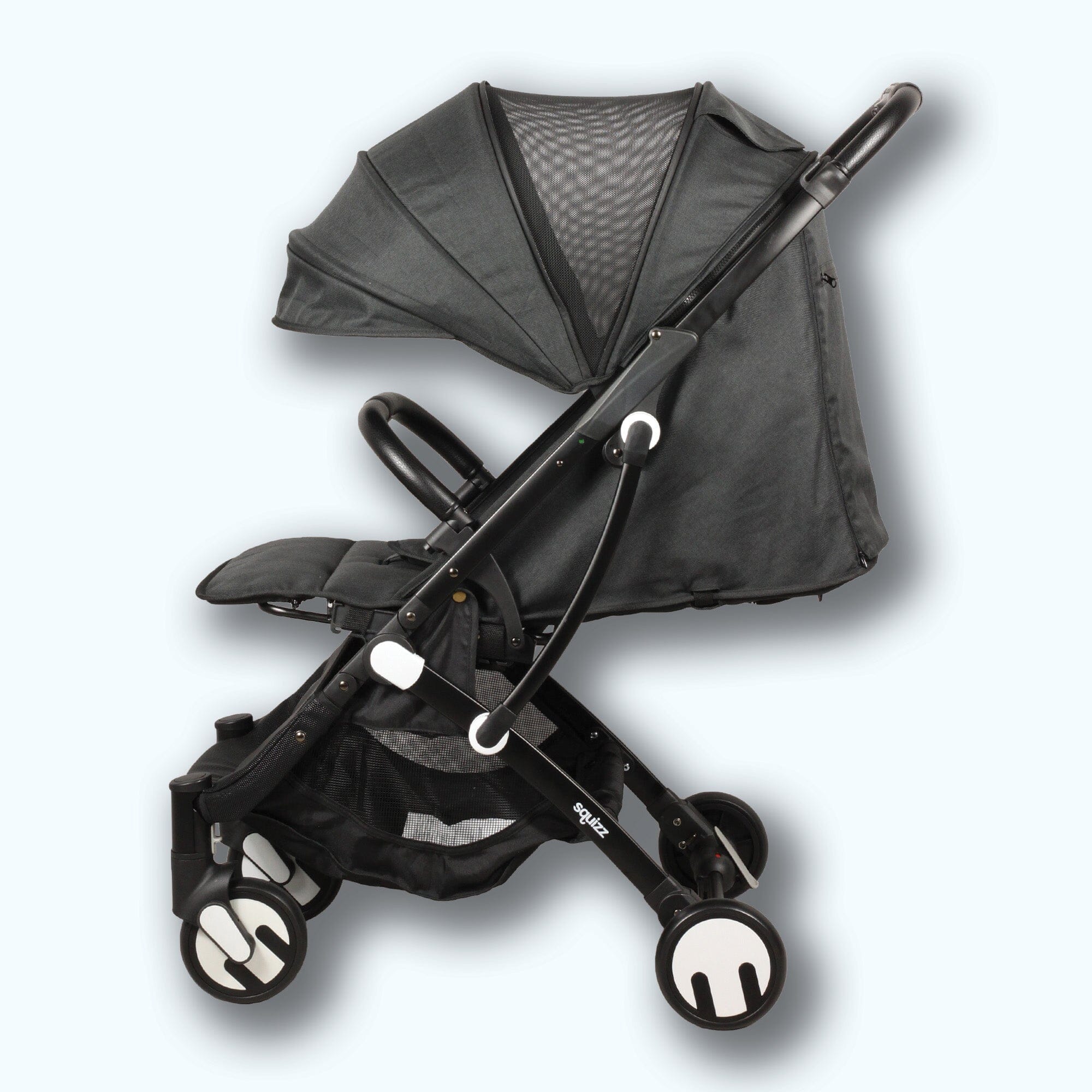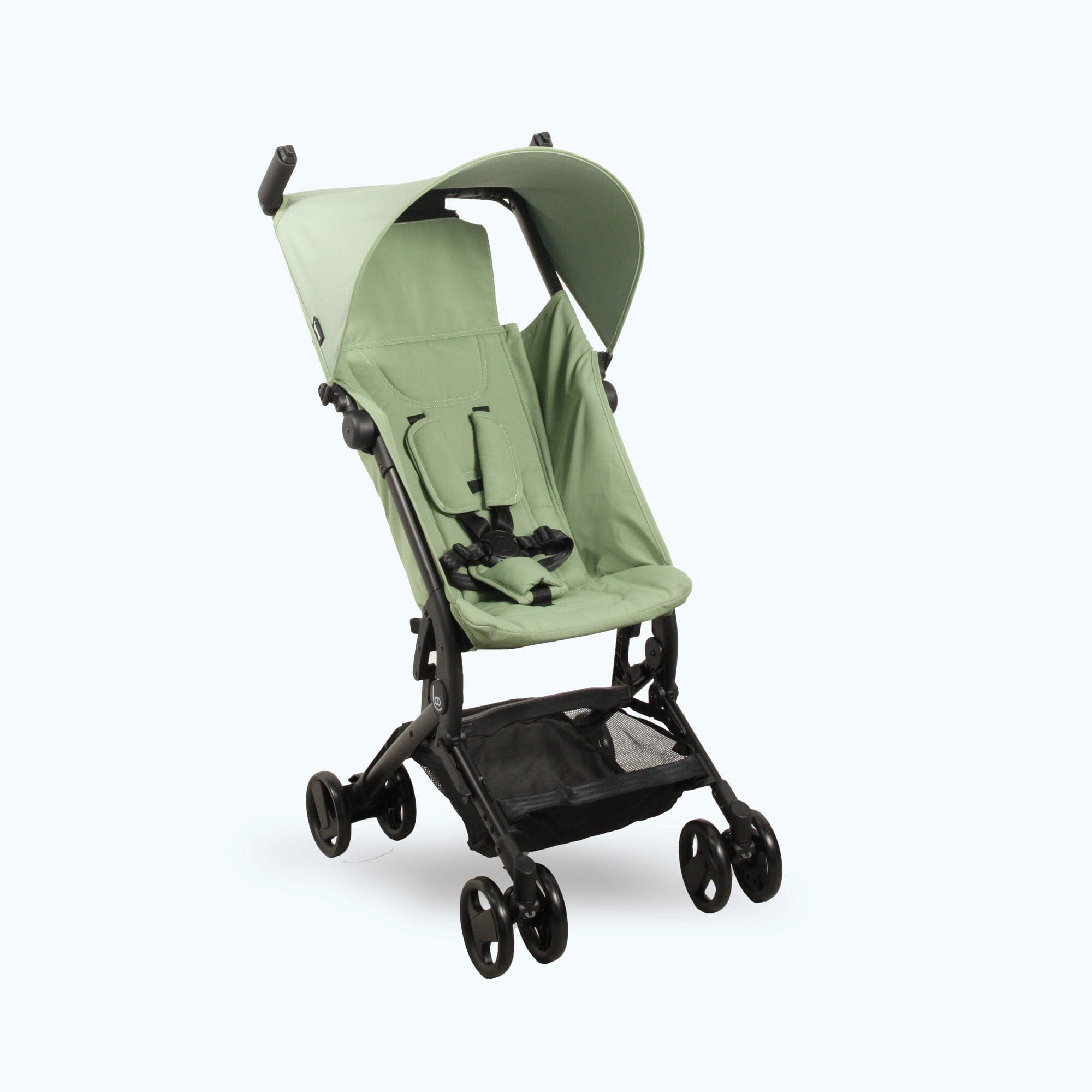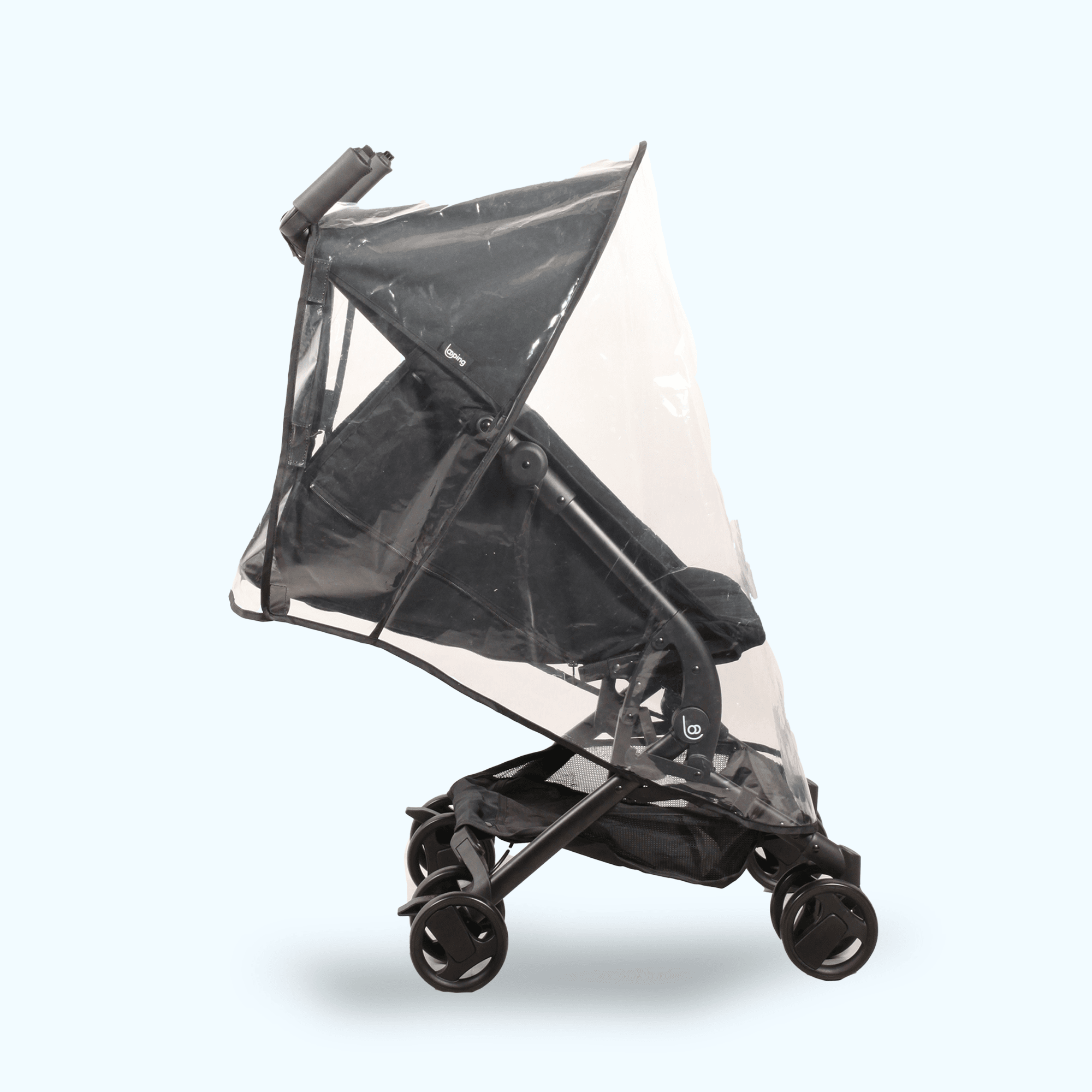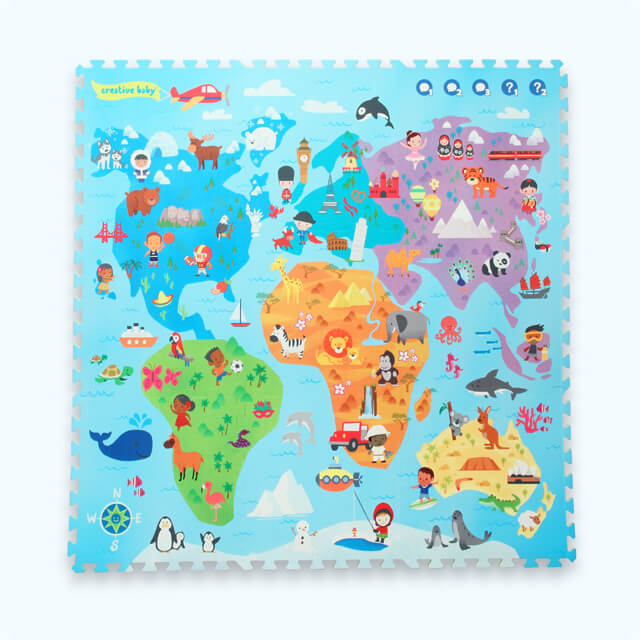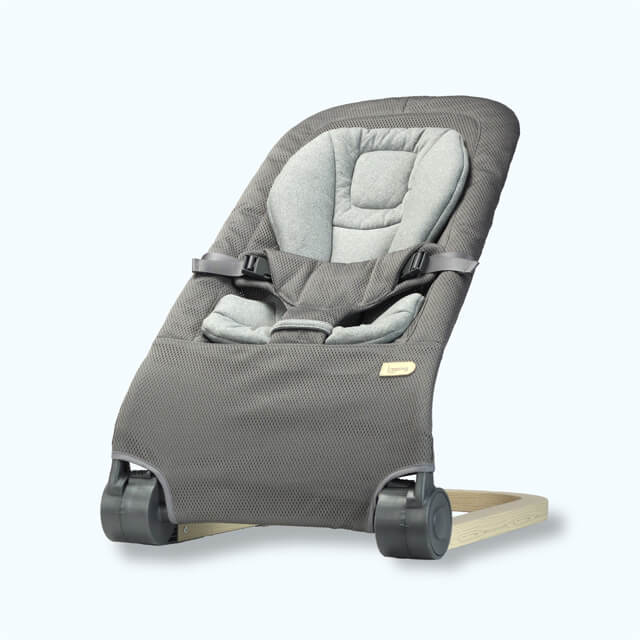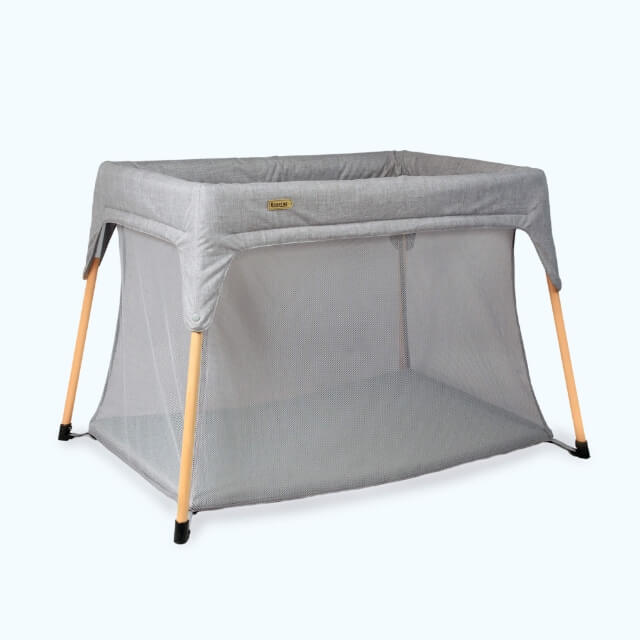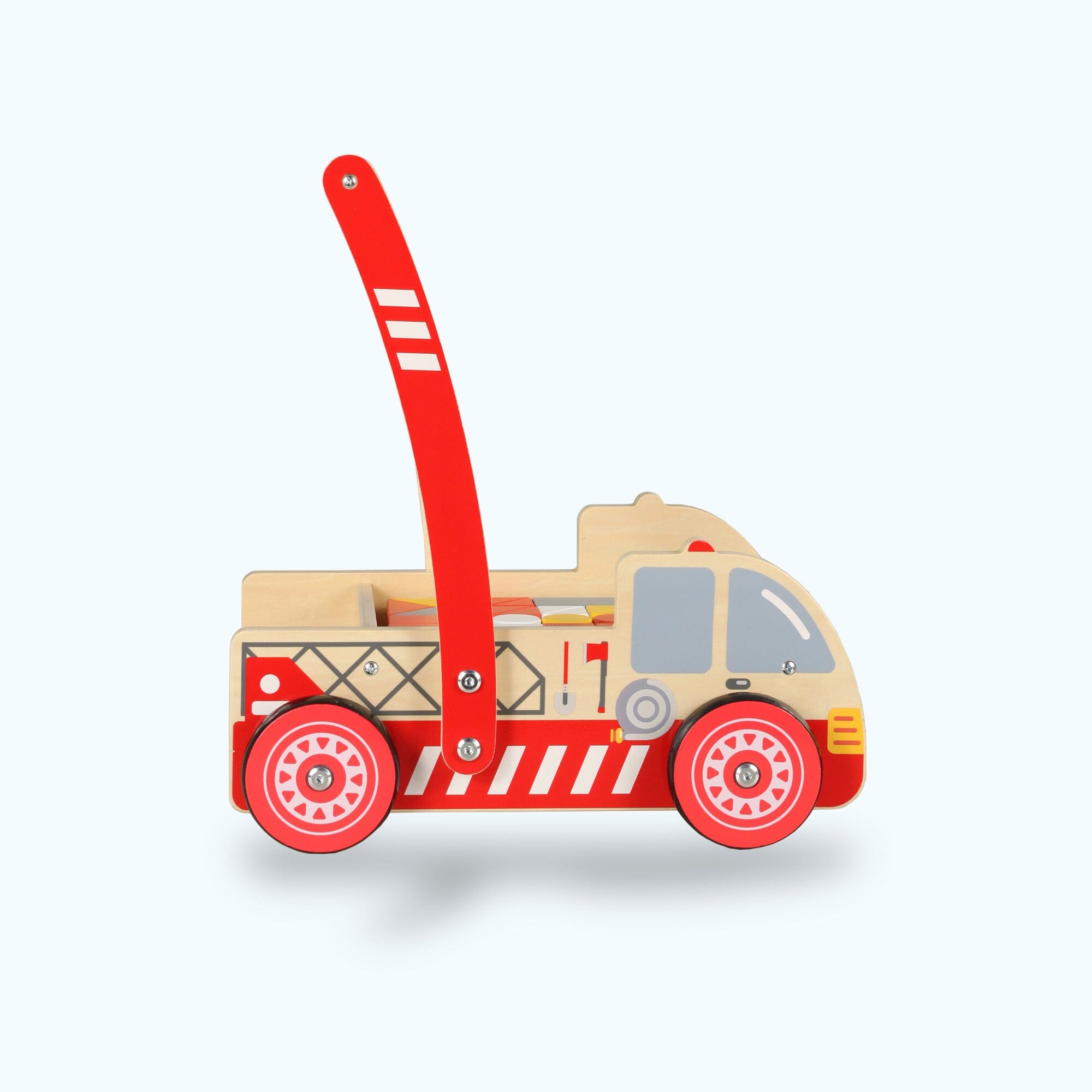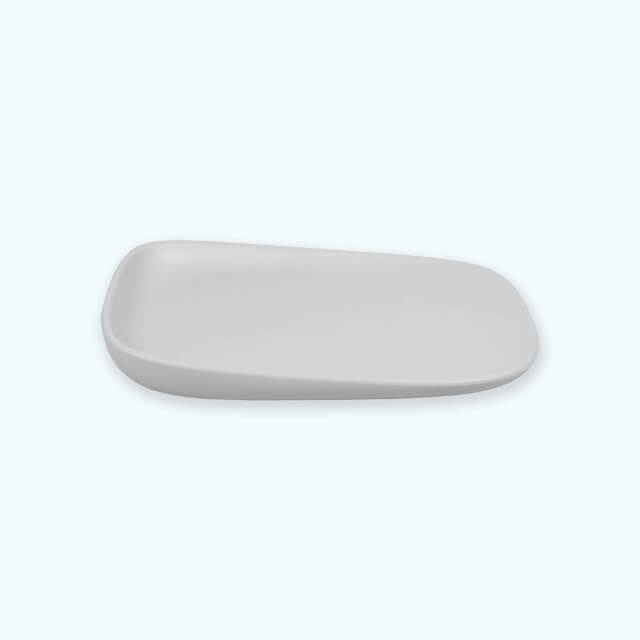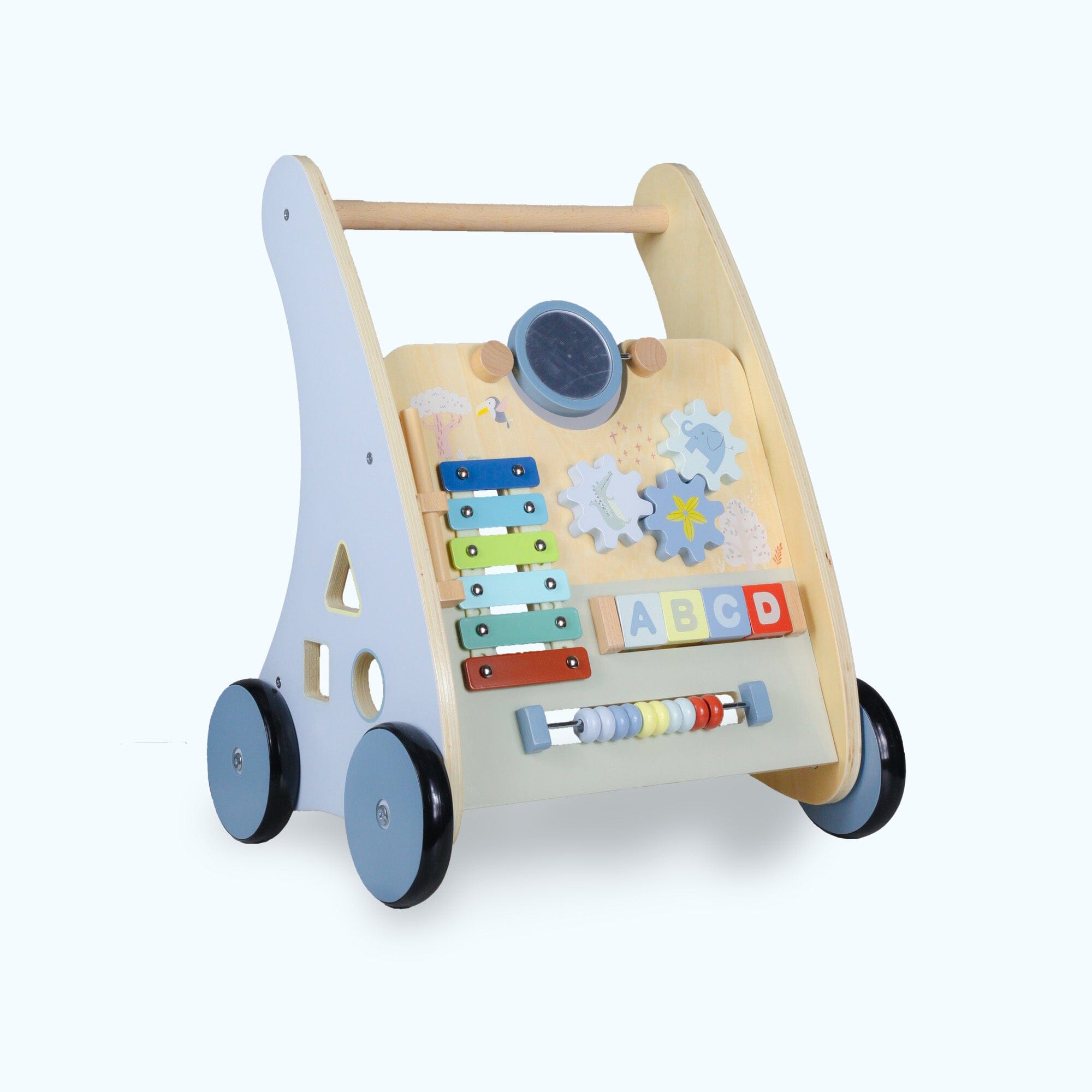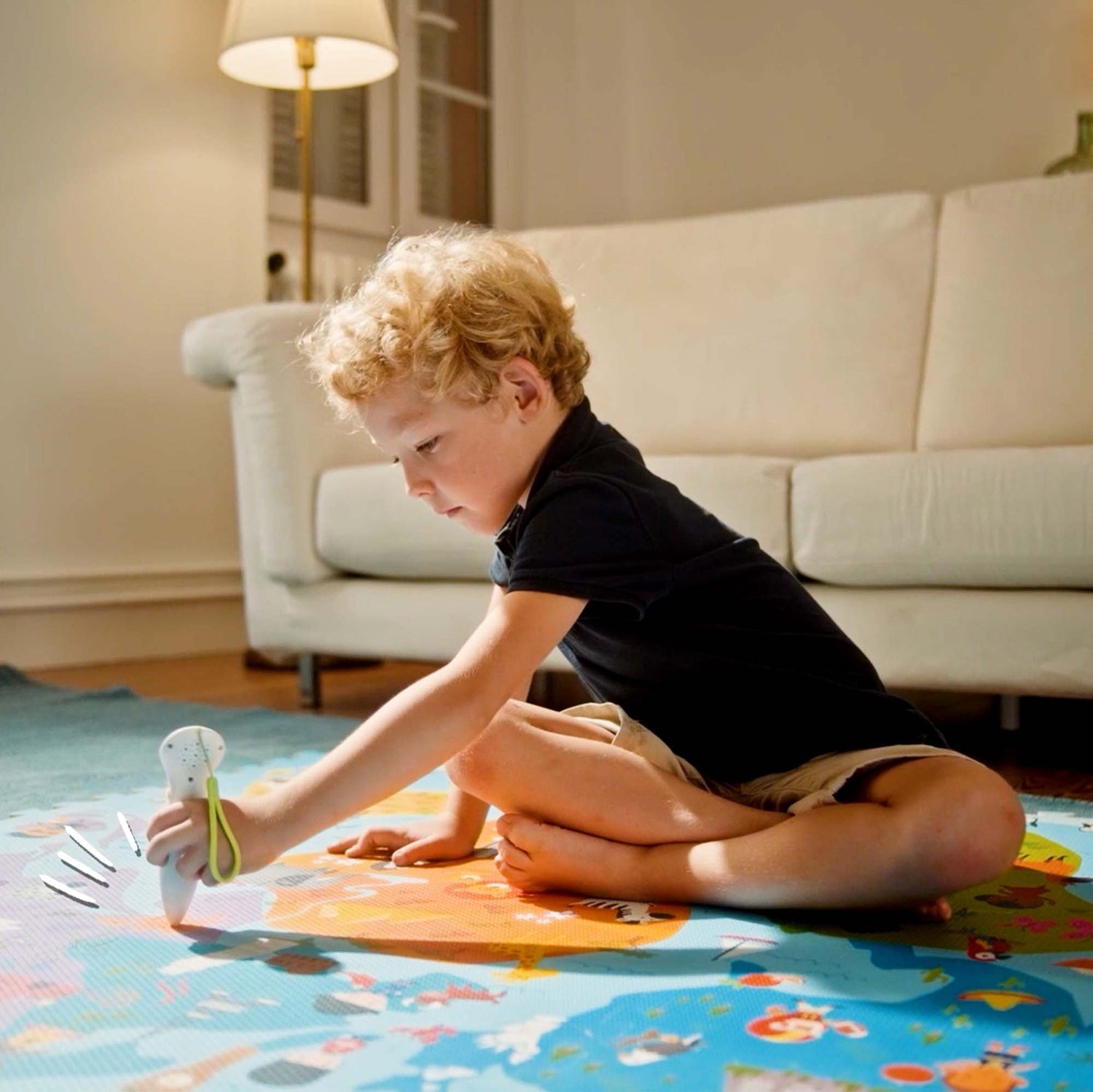From a very young age, children must learn many things that seem so natural to us adults: how to pick up an object, get up, speak, live in harmony with others , or how to manage anger and anger. frustration . It is now proven that it is largely thanks to play that children will be able to gradually acquire new skills. They say that play is children's work - and it's true!
So… What’s better than combining business with pleasure? We will explain everything to you.
Play: an essential in the life of your little wolf
Play from birth
Have you noticed that if you put your finger in your newborn's palm, he grips it tightly? This is an important reflex - an action that babies have at birth and do automatically. It looks like he's playing with you, doesn't it? However, from around 3 months, these reflexes begin to disappear. Babies then begin to move their bodies for a specific purpose. They are much more interested in the world around them. They begin to explore toys and people through the senses, and they learn what objects and people are and do through this sensory play.
Reproducing your child's facial expressions, singing lullabies, exaggerating facial expressions, talking to your child: it is these simple moments that lay the foundations of play and establish your baby's emotional security. The game therefore begins from birth, a baby is ready to play in his own way. During the first months of his life, he uses his senses to play and learn. He also often plays alone with his hands and feet.
There is a disjunction between learning and play. Learning has long been a reference to effort, rigor and seriousness while play often reflects an image of relaxation and pleasure. It is likened to a moment of reward and escape, to an activity
without constraint and without consequences on life. But it turns out that the game is actually a symbolic and educational activity. It is not an opponent of learning and is even a beneficial tool for education. But why ?
Fundamental learning
Above all, the game allows the acquisition of fundamental learning such as knowledge , know -how (through practice, implementation and the gestures that games involve), and finally, knowing how to be (through learning behavior that allows the child to integrate into society - emotional, social and behavioral benefits). In fact, play is as much a part of healthy development as eating vegetables, reading books together, and getting a good night's sleep.
To help you better understand the impact of play in your little one's life, think about yourself when you feel overwhelmed. Isn't your first instinct to take refuge in activities that soothe you? Gym, singing, outing with friends, walks… These activities are more than a distraction. They are a way to reconnect us, to recharge our batteries. The same goes for children, although they need much more play time. Frequent, daily play can help reduce your child's anxiety, stress and irritability. It also helps to strengthen joy and self-esteem.
That's not all…
Play promotes cognitive growth (this means that play is essential for healthy brain development.) It also allows them to learn about the world and themselves. They also learn skills they need to study, work and maintain relationships, such as:
- Self-confidence
- self-esteem
- resilience
- the interaction
- social skills
- independence
- curiosity
- the ability to deal with difficult situations
Education and socialization through play
The game is also perfect training for tomorrow. When given the opportunity to think, negotiate, adapt to new rules, and try again when things don't go as planned, children develop essential skills that will last a lifetime and provide a love of learning. This way of learning is very stimulating for them, and often much more effective, because children are necessarily more motivated and concentrated. For slightly older children, the game changes the relationship children have with the school environment and introduces healthier relationships between classmates, developing teamwork, communication and mutual respect.
The game also allows parents to fully connect with their children and have fun. You are your baby's first playmate. Play is a fun way to bond with your baby and promote healthy development. But
attention ! As parents, we know full well that it is often tempting to want to control everything. A parent or caregiver can support and participate in their child's play activities, but here is our little advice: give your children the time, freedom and choice to play. If an adult makes all the decisions about how, what, and when a child plays, the child will not enjoy their play experiences.
If you decide to participate in your child's play, be careful not to try to take over and force your ultimate learning goals into their play. Structured, adult-led activities have their time and place .
Explain to them that it is important to learn from their mistakes, try again and believe in themselves. Children also need to experience and learn on their own, so that they can become confident and capable when facing new situations. It's essential to know when you need to integrate into your child's play.
All we need to do is try to support them without being too much on them, because that's how they will learn to cope in the real world.
Gaming and digital technology
When we talk about games, it makes sense to talk about digital technologies which are today totally in the era of our times.
If you've ever wondered if it's worth fighting with your child over how much time they spend in front of a phone, tablet or TV, the answer is yes! While certain types of technology can improve the way children learn and socialize, excessive screen use can take a toll on their bodies, minds, and relationships. Spending too much time on screens has also been linked to insufficient sleep, poor grades and an increased risk of obesity. Even though it is sometimes tempting to put your child in front of a digital game to have a little time for yourself, still try to limit their time spent in front of the screen. The younger the child, the fewer digital devices they should use.
By reducing the use of digital games, children can spend more time interacting with family and real life. Limiting screen time can have a positive effect on children's physical, social and behavioral well-being.
It is recommended to limit screen time to one hour per day for children aged 2 to 5 years and to avoid screen time completely for babies and children under 18 months. An exception to this rule for all young children may be video chatting with family and friends, which strengthens communication skills. When they're not plugged in, toddlers and preschoolers have more time to develop important skills. As we've already explained, simple play activities are deceptively important for learning and development
of creativity. Children with limited screen time also have more time to develop communication skills, move their bodies and rest.
The Magic Mat: a must for learning
We told you: it is through play that children learn about the world. This has never been so true with the Magic Mat: it makes their imagination work and makes them aware from an early age of places in the world, animals and colors. Shall we briefly explain the principle to you?
The Magic Mat encompasses interaction, education and sustainability in the form of a cute world map that sparks baby's curiosity and passion. This play mat (also serving as a puzzle and activity mat) can be used from birth with no age limit, and with several levels of difficulty.
Thus, the Magic Mat will be there to support children from a very young age, and this will continue even when they grow up.
1st step : the play mat
This first stage of the Magic Mat allows the child to stimulate each of his senses, especially since it offers varied activities. Baby will develop his visual perception and learn more about using his little fingers! The play mat is a fun place for learning.
2nd step : build your own play space with the puzzle
By doing puzzles, children exercise their fine motor skills, improve their hand-eye coordination and practice concentration and patience.
Step 3 : The Magic Mat Improves Literacy
Children are born wired to learn language. From birth, they learn language and literacy skills through play and interaction. Babies and young children learn new words when adults describe what they see, hear and do. Songs and poems connect syllables to rhythms. This helps children develop their listening skills and learn the sounds of words. So, what's better than an interactive and musical play mat for this?
The Magic Mat allows for the development of thinking and the ability to solve problems in a musical and fun atmosphere. In this third stage, your mini will be able to marvel at the colors, discover the animals and the world. The pen will ask him to indicate this or that thing, which will directly promote his learning and culture in a fun way, without real risks. A little voice will be there to guide him and introduce him to words and syllables all in melody.
4th stage : different levels of difficulty are offered as well as language learning
In fact, there are multiple play possibilities so that he will never tire of them. For older children, puzzles make the game a little more difficult. There is also the possibility of recording your own voice with the pen. Finally, the Magic Mat offers baby the opportunity to improve their language learning thanks to its multilingual qualities: French, English and Spanish are on the program.
In conclusion, it is clear that play fuels curiosity, stimulates creativity and inspires a love of learning that will last a lifetime. It lays the foundation for literacy, promotes development and fulfills a baby's innate need to learn. It also encourages parent/child communication and helps parents understand their child's body language. Learning to play well, both on their own and with others, keeps children content and sociable.
At Looping, we recognize the importance of play for the healthy development of children. This is why we decided to imagine the Magic Mat, a game which will bring maximum benefits to the child and which will best optimize their learning and culture. Give him all the cards to become the best version of himself.
Sources:
https://www.nidirect.gov.uk/articles/how-play-helps-childrens-development#:~:text=Play%20improves%20the%20cognitive%2C%20physical,confidence
https://www.epl.ca/blogs/post/importance-of-play-for-kids/
https://publications.aap.org/pediatrics/article/119/1/182/70699/The-Importance-of-Play-in-Promoting-Healthy-Child?autologincheck=redirected?nf Token=00000000-0000-0000 -0000-000000000000
https://learningthroughplay.com/why-play
https://literacytrust.org.uk/resources/10-reasons-why-play-important/

